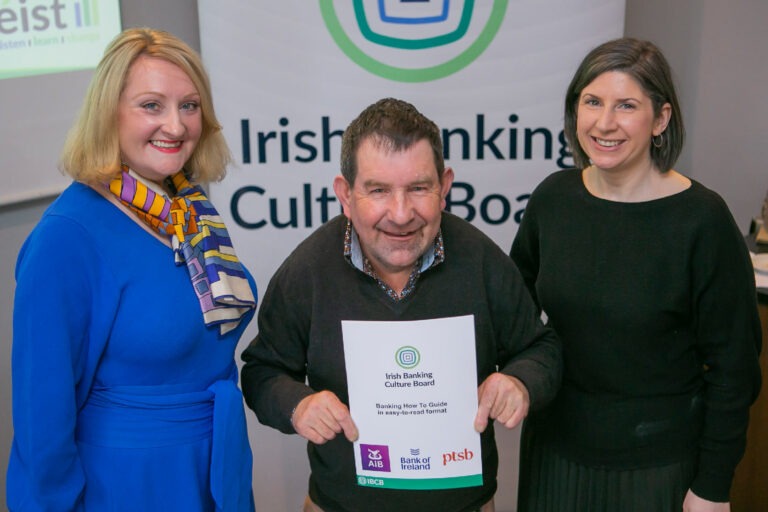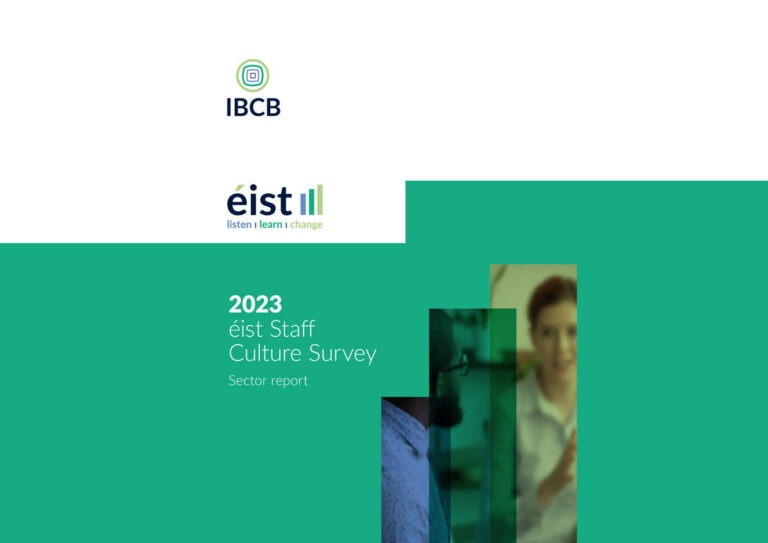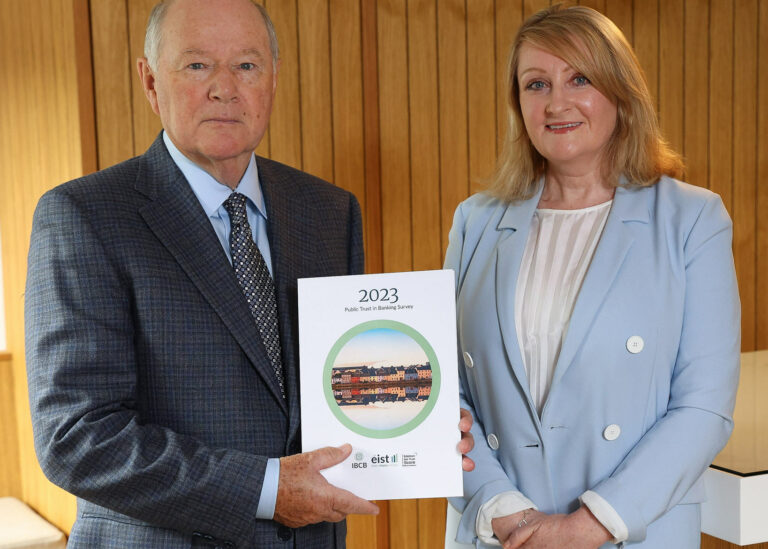Good afternoon Ladies and Gentlemen. Thank you to Dr Ciarán Mac an Bhaird and the other organisers of the Dublin Economic Forum for inviting me to attend and contribute to this session focussed on the Future of Banking in Ireland. It is an honour to be here, and I look forward to hearing from the other contributors on this topic and to the discussion which will follow.
Retail banking globally is changing at a significant pace, primarily driven by technological innovation and the demands of the majority of customers (but not all) for increased digital offerings. The retail banking market has also become increasingly fragmented with the entrance of Fintechs and other providers specialising in discrete banking products such as payments, cards and mortgages or a combination of these. These new players in the market typically benefit from leading edge technological infrastructure and operate without the traditional branch networks, or requirements to offer the full suite of banking services, as is the case for the incumbent players.
These fundamental changes in the sector are further exacerbated in Ireland by the planned withdrawal from the market of two of the five retail banks currently in operation here – Ulster Bank and KBC Bank Ireland, which will result in a materially smaller and potentially less competitive market.
Discussions such as this on the future shape of the banking market are therefore very important – it is essential that we have open, honest and inclusive debate on this key topic for all of us as individuals, as well as for the wider economy. The current review under the auspices of the Department of Finance is a welcome development in this regard and I look forward to the outcome of it which is expected before the end of this year.
Regardless of how retail banking services are delivered or how the sector evolves, it is crucial that banking is rooted in a trust-based culture where customers and staff are central to the decision-making process.
So what then are the views of the Irish Banking Culture Board (IBCB) in this regard? Let me start by giving you a brief outline of who and what the IBCB is. The Board was established in 2019 by the five retail banks1 then in Ireland. Our Board of 14 members is majority non-bank and includes a wide range of individuals representing various cohorts of society and consumers, our member banks are also represented at a senior level on the Board, and we are chaired by Mr. Justice John Hedigan formerly of the Court of Appeal and the European Court of Human Rights. Our purpose is to work with our five member banks and wider stakeholders to build trustworthiness, in order to assist the Irish retail banking industry in regaining the public trust so badly damaged in recent times. A key part of our role is measuring trust levels with the public and identifying actions to look to address concerns raised.
Our most recent éist survey of Public Trust in Banking found that trust levels remain extremely low, particularly so with certain cohorts of customer, especially the farming community. There have been small improvements in trust levels with other customer cohorts such as SMEs but there remains a significant mountain to climb in the restoration of trust in an industry which is essential to us all.
Any discussion on the future of banking in Ireland must reflect on the mistakes of the past and look to build structures and processes to protect against similar issues arising again. The reputation of the Irish industry has been hugely damaged by the poor behaviour of the sector during and post the financial crisis and especially in relation to Tracker mortgages. For the sector to flourish and develop into the future – it is essential that the findings of the Central Bank’s (CBI) investigations into the sale and withdrawal of Tracker Mortgages which is expected to conclude in the coming period acts as a book-end to the unacceptable behaviour and culture within Irish banking which contributed to the tracker mortgage period, and that the issues identified by CBI are not forgotten, but rather act as a source of ongoing motivation for lasting cultural and behavioural change. We are presented now with an excellent opportunity to move into a post-tracker era in Irish banking, an era that can be defined by a renewed culture and positive behaviours that benefit customers, staff and ultimately the wider society in which banks play such a critical role.
Sincere apologies are important and are part of the healing process, but it is actions not words that are essential in this context. I acknowledge the focus by the industry over the past number of years in improving culture and behaviour and while there has been progress, there remains much to be done. It is imperative that the issues identified by the CBI result in lessons being learned and fundamental changes in structures and procedures to protect and prevent similar issues arising again.
On this basis, the IBCB would highlight six key areas of focus for the roadmap to the post-tracker banking industry, a number of which are founded on issues that the CBI has explicitly referred to in its tracker mortgage investigation reports to date:
1. Customer focus;
2. Decision-making;
3. Communications;
4. Speaking up & Being Heard;
5. ‘Stop the Harm’ principles; and
6. Individual accountability.
I will just touch on three of these issues here – Customer focus, Speaking Up and Individual Accountability. (The IBCB will be making a statement at the conclusion of the CBI’s Tracker Mortgage investigations which will be available on our website www.ibcb.ie)
Customer focus:
It is abundantly clear that there was a lack of real customer focus for much of the period relating to the sale and withdrawal of tracker mortgages. Customers have articulated to us how they felt decisions were taken primarily from the perspective of the banks, rather than with their best interests being to the forefront as should have been the case.
All five IBCB member banks include customer focus and service within their core values and strategies and have made progress in recent years in translating these stated values into actions and initiatives aimed at improving outcomes for customers: the ‘voice of the customer’ has been integrated into formal and informal governance structures and decision-making, customer complaint data is analysed for insights and learnings, we have seen enhanced consultation and engagement with specific customer cohorts impacted by decisions and there has been proactive supports put in place for customers in vulnerable positions and impacted by significant events – such as the payment breaks introduced during the Covid-19 crisis. However, it is clear that these efforts by the banks have yet to resonate with the majority of bank customers, whose low levels of trust in banking is largely driven by perspectives on the banks’ customer focus. Customers need to experience improved customer outcomes through their lived experience. Our most recent éist survey finds that ‘understanding customer needs’ is the most important driver of trust – increasing in priority from ranking 8 in 2021 to ranking 1 in 2022. The public has highlighted that a real and sustained focus on all of the customer centric trust behaviours is required by the banks. This must continue to be a priority area of focus for Bank Boards and Senior Executives.
Speaking up
There has rightly been much debate about the role of ‘speak ups’ and ‘psychological safety’ in the context of the tracker mortgage reviews and other reviews of non-compliance and poor conduct. The manner in which leaders, and their organisations, manage the ‘Speak up’ and indeed the ‘Listening up’ process is very telling regarding the nature of their individual ethos and culture. If an organisation is not serious about fostering an environment where people feel ‘safe’ to air alternative views be that at meetings or in one to ones, or in ensuring that the process around the handling of formal ‘speak-ups’ is robust, transparent and confidential, then it will be extremely difficult, if not impossible to succeed in delivering real cultural change. An open, inclusive, positive, and safe working environment must be founded on a structure that promotes the right of individuals to speak freely and openly regarding issues that concern them, or indeed things that can be improved and made more efficient. People must feel that it is possible, and indeed that it is encouraged, to challenge – in a positive manner – the status quo. This culture of openness and positive challenge is important to instil at Board level and all the way down throughout an organisation. Without this environment, there is a real risk that individuals (be they Board, senior management or more junior staff) will feel disempowered and irrelevant. Our most recent éist bank staff survey pointed to substantial improvements in relation to speaking up across all five of our member banks and the sector generally2. While this progress augurs well for the future, there is no room for complacency and the IBCB will continue to prioritise this as an issue.
Individual Accountability
There has understandably been much disappointment and upset at the lack of enforcement to date against individuals as a result of the CBI’s tracker mortgage investigations. Individual accountability is a cornerstone of positive behaviour and culture. To regain trust, it is imperative that stakeholders recognise that the banking industry’s commitment to behavioural and cultural change is more than just words, but rather a real commitment that involves change to how business is done and is underpinned by a framework which enables individuals, as well as organisations, to be held to account. In addition to enhancing trust with stakeholders, the introduction of the individual accountability regime has the potential to yield further positives for those institutions subject to it, via clearer decision-making and overall governance processes, and, by extension, better and more transparent risk management.
The IBCB and our member banks are strong advocates for the introduction of an effective individual accountability regime in Ireland, similar to that in successful operation in many other jurisdictions globally and we welcome the publication of the Bill in July this year. Much of the focus and debate to date in relation to the regime has been on the importance of holding individuals to account for their behaviour and the penalties which will be available to the regulator when it is proven that such behaviour has been inappropriate. This is understandable in the context of past misbehaviour in the Irish financial services industry, in particular in relation to tracker mortgages, and the difficulties in holding individuals to account in that regard. However, it is also important to focus on the potential positive aspects of individual accountability, and how it can be used to promote and underpin the right behaviours and decision-making via embedding and promoting the new regime internally with bank staff. An aspect of this which requires fair and balanced consideration, relates to the internal methods and tools which can be used by firms to incentivise the right behaviours and penalise inappropriate behaviours. This will be an important element to get right and will have a significant influence on the future of the industry.
The introduction of an individual accountability framework in Ireland offers a real opportunity to assist both the regulated, the regulator and wider Irish society to work cooperatively and positively together in moving forward into a new phase of engagement founded on mutual respect and trust, informed by the lessons from the past.
I’d like to turn now to issues surrounding the accessibility of banking services into the future as a result of increasing digitalisation and reducing branch networks.
Accessibility and Choice
The IBCB’s éist surveys (& those of many others) show that there are demographic variances in trust levels, with older generations indicating less trust towards banks. Digitalisation has created feelings of alienation for some older customers and some in rural locations, particularly as a result of reduced bank branches and a move towards cashless payments. Conversely, digital banking is the preferred approach for many, in particular younger customers. But others, in particular those who may need additional support be it by choice, or due to issues such as cognitive or financial literacy must be supported. Alongside this move to digital banking, many consumers and SMEs are experiencing an increase in fraud and scam activities. This has been particularly problematic in the past two years.3 In our engagement with customers and advocacy groups, fear of fraud is cited as a source of concern for customers in their online banking and prevents some customers from embracing digital tools.
It is essential that a balance is struck in serving those who do not wish to, or cannot, use digital options and those who are comfortable with digital banking. Retail banks need to find ways to facilitate some people’s desire for in-person banking services, whilst continuing to deliver the innovation that increasing numbers of people are demanding. This is vitally important to ensure that some customers are not financially excluded or placed in a vulnerable position because of these changes. This includes the need for a concerted effort across sectors (e.g., banking, telecommunications, law enforcement etc.) to deal with the ongoing fraud and scam issues, which have been so detrimental to customers.
Ongoing changes to the traditional delivery of banking services is certain – cashless payments are steadily increasing – perhaps accelerated by Covid – but the majority of customers are specifically choosing this form of payment – most recent figures from the BPFI’s Payments Monitor show that online and mobile banking (digital banking) payments continued to grow strongly in Q2 2022 with volumes growing by 11.7% year on year to 36 million payments per quarter. This was the highest level recorded since the BPFI began collecting this data in 2016. However, there are many customers who wish to retain access to cash – the recent outcry in response to AIB’s proposal to withdraw cash services from a number of branches is instructive. What is clear, is that while change is happening, those who are uncomfortable with it for whatever reason, or who require a more bespoke approach, must be listened to and consultation and engagement is key. From the perspective of the IBCB it is essential that consumers – particularly those in a vulnerable position, have a range of banking options available to them – not just digital – when using financial services and accessing credit. Partnerships between the incumbent banks such as with An Post for the provision of local banking services offer opportunities to serve communities and there is also scope for initiatives such as local banking hubs (shared by a number of banks) which are used successfully in a number of other countries. This will be an important area for policy makers to focus on in the period ahead.
To finish, I’d like to mention another critical element for the future of banking in Ireland – this relates to levels of organisational and industry pride. Bank employees are the trusted custodians of people’s finances, a privileged role, one that comes with significant responsibility and in which they are entitled to take pride. The IBCB’s 2021 éist survey of bank staff found that staff’s sense of pride in working for their organisation sits at 57% across the sector, which is 16 points below the global FS benchmark. I have reflected in this speech on the low levels of public trust in Irish banking as a result of the poor behaviour of the sector over recent years. While learning lessons from the mistakes of the past is absolutely essential, it is also essential that there is a more balanced discourse on an industry that has changed significantly in recent years, and which is integral to economic success. During recent difficult times, bank staff worked together to increase contactless payment limits, maintain the payment systems, organise payment breaks for a vast number of customers, and keep branches running. Bank staff have every reason to be proud of the manner in which they demonstrate this customer focus.
The success of the Irish Banking sector is largely dependent on the thousands of bank staff working across the industry. It is concerning that Irish bank staff report lower levels of organisational pride than their peers in other jurisdictions. To ensure that customers’ needs are well served, it is vital that the industry can attract and retain talent, both now and in the future. Understanding and addressing the issues that are impacting bank staff’s sense of pride in their roles and organisations is therefore essential. The IBCB will be publishing a report on this important topic next week.
In conclusion, an efficient, competitive, profitable Irish retail banking sector is essential. The changing banking model will result in further change and potentially unpopular commercial decisions. Despite changing market composition, operational models and products, customer choice and access to financial services are essential elements to be maintained into the future. The expectations on the banking industry to play a key role in financing the global transition to sustainability requires careful navigation and offers an opportunity to rebuild trust. Acting with accountability and supporting those who need it will, in time, improve trust levels in an industry which is essential to us all.
Thank you.
1 Allied Irish Banks, Bank of Ireland, KBC Bank Ireland, PTSB, Ulster Bank
2 IBCB éist Bank Staff Survey 2021: 3 in 5 bank staff (58%) feel that their organisation’s commitment to building a speak-up culture has strengthened and importantly there has been a 10 point increase to 69% of those who had a concern and felt comfortable to raise it in the period; A further very positive finding for the Irish sector is that 75% of staff report that people who make a mistake are treated fairly – this is a key indicator of culture – reflective of ‘organisational justice’ and is 3 points ahead of the global benchmark.
3 Fraudsmart, ‘Payment card fraud hits €24 million in 2020 with majority of debit and credit card fraud taking place online’ (2021), https://www.fraudsmart.ie/2021/11/23/payment-card-fraud-hits-e24-million-in-2020-with-majority-of-debit-and-credit-card-fraud-taking-place-online/




